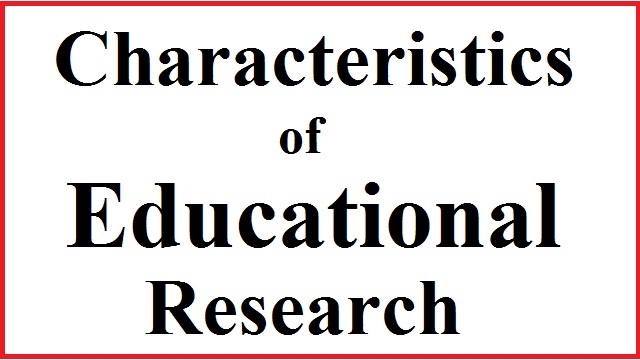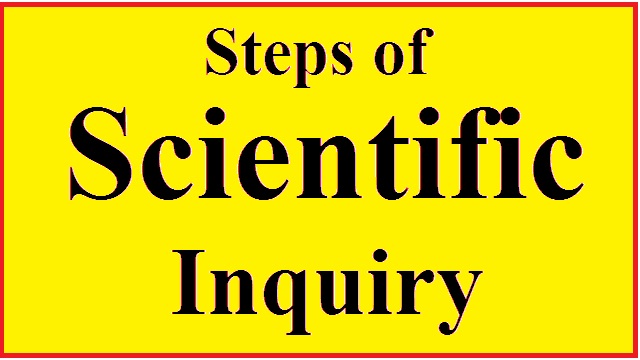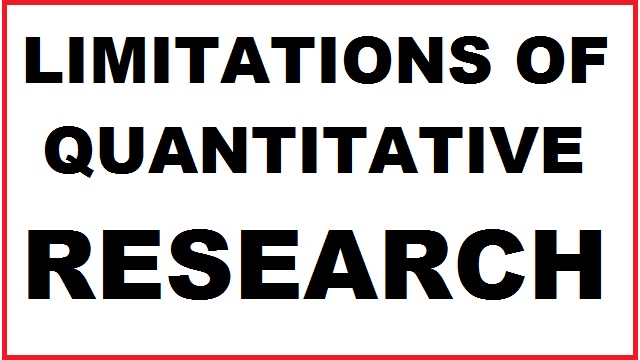Characteristics of Educational Research
Characteristics of Educational Research
Characteristics of Educational Research:
1. Begins with a question in the mind of researcher.
It is directed towards the solution of a problem in the field of education and to determine the relations between problems and phenomena of the nature of problem encountered.
2. Requires a plan.
It emphasizes the development of generalizations, principles or theories that will be helpful in prediction future occurrences. Generally educational research goes beyond the specific objects, groups of situations investigated and infers characteristics of a target population from the sample observed. It attempts only what can be verified by observation, certain interesting questions do not tend themselves to research procedures. Educational research is based on insight and imaginations, it needs the service of man who looks beyond the present and also requires interdisciplinary approach. It is related to the study of complex relations about facts. Although research activity may at times be somewhat random and unsystematic, it is more often characterized by carefully designed procedures, always applying rigorous analysis to make a problem statement clear and effective.
3. It involves getting new data from primary or firsthand sources or using existing data for a new purpose and accepts only what can be verified by observation.
Here primary source of data is one where the person providing the data was actually present, whereas a secondary data source is one where the data comes from one who was not present. For example, a child’s test results are primary sources, whereas a teacher’s recollection of how well a child performed is a secondary source. Research studies are primary sources if one consults the original account such as found in a research journal. Descriptions of research studies reported in a book are secondary sources since they are described by the author of the book rather than the person who conducted the research.
4. Research demands accurate observation and description.
Unless we can accurately describe our findings and observations objectively they will have little meaning for others and will be of no general use. Statistics can be used to quantify and simplify description by grouping observations and describing in a few words, symbols or numbers that would otherwise take a great deal of prose. In some cases, photographs, videos or films can be used to describe educational situations. Descriptions can also be enhanced and brought to life through the use of quotations, including stories and, as is the case in qualitative research, subjective interpretations by the researcher. Regardless of the approach— qualitative, quantitative or both—without good descriptions it is impossible to move to higher levels of research.
5. Deals with the main problem through sub problems.
Research is a deliberate and unhurried activity which is directional but often refines the problem or questions as the research progresses. That is, divide the main problem into appropriate sub problems, all of which when resolved will result in the solution of the main research problems.
6. Seeks direction through appropriate hypothesis.
Having stated the problem and the related sub problems, the sub problems are then each viewed through logical constructs called hypotheses. A hypothesis is a logical supposition, a reasonable guess, an educated conjecture which may give direction to thinking with respect to the problem. And thus, aid in solving it.
7. Research attempts to find an objective, unbiased solution to the problem :
It is important to understand that the researcher should be unbiased and not have too strong a vested interest in the outcome. It is natural for people to do research in areas towards which they feel a certain value commitment, but it must not interfere with one’s ability to preserve objectivity. People with a mission should engage in volunteer work or religion; they should not pursue research to justify their causes.
8. Research requires expertise—familiarity with the field; competence in methodology; technical skill in collecting and analyzing the data.
The researcher should be a skilled observer, familiar with the patterns and theories that govern human behavior and sensitive to recognizing which manifestations are important and which are routine. He or she must know how to observe, record, analyze and share this world view, so that other researchers can criticize, replicate and extend this new knowledge.
9. Not a field of the specialist only.
It is not a field of specialist only. Research carried out in the day-to-day work of school, should be concerned directly with the problems of the school such as child development, classroom management, curriculum matters, teaching techniques and many others. Thus action research may be done by a classroom teacher or an educational administrator.
10. An Interdisciplinary approach.
Educational research is a complex process because it can use various approaches and strategies to solve problems in educational setting. It can involve many disciplines such as anthropology, sociology, history and so on.
11. Research is carefully recorded and reported.
Each important term is defined, limiting factors are recolonized, procedures are described in detail, references are carefully documented, results are objectively recorded and conclusions are presented with scholarly cautions and restraint. The written report and accompanying data are made available to the scrutiny of associates or other scholars. Any competent scholar will have the information necessary to analyse, evaluate, and even replicate the study. . Indeed, the human species differs from other forms of animal life in that humans are able to learn from the experience of others. Information is collected, analyzed and communicated, and over time the body of accumulated knowledge increases and provides the basis for societal progress.
12. Research is based upon observable experience or empirical evidence.
Empirical evidence includes measurement or data collected through direct observation or experimentation or direct/indirect sources. Certain interesting questions do not lend themselves to research procedures because they cannot be observed. Generally research is carried on by validation of data and verified by observation but sometimes hypothetical theories can also enrich the research area in consideration with past research work experiences in those domain.
By:
Sabnam Yasmin
Roll No.:08
M.EdSem-I
Paper Code: MED 214




Comments
Post a Comment